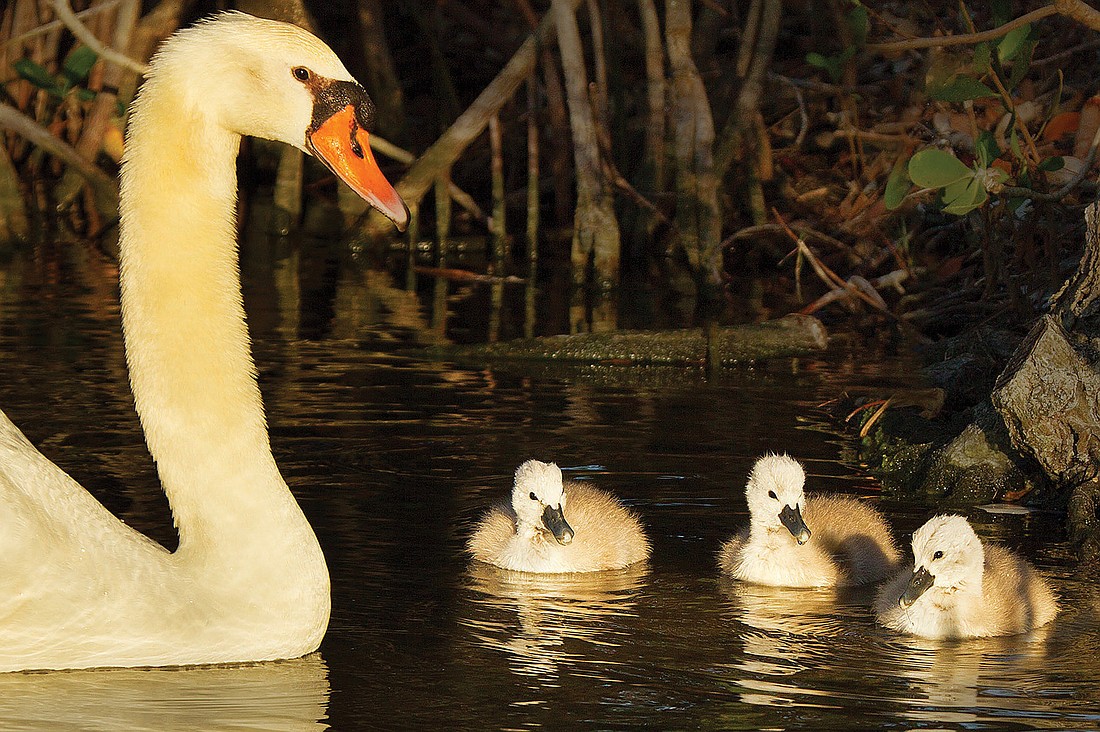- April 19, 2024
-
-
Loading

Loading

Swans Alan and Beverly became the parents of four cygnets Monday, April 30. Swankeeper David Novak had been awaiting their exit from the nest, which typically takes place five days after hatching. But, when he went to look for the family, he only found an empty nest.
Novak was surprised to find that the swan parents and three of the cygnets (it is assumed that a predator or the parents killed the fourth cygnet) had moved to an entirely new location between Winding Oaks and the Longboat Key Club Tennis Gardens.
“Typically, they have used both sides of Harbourside Drive,” Novak said. “I never expected them to go such a distance with the small ones.”
It is not possible to predict if they will stay in their new location.
Novak presumes swans Wendy and Stan, whose eggs are overdue for hatching, have a nest of infertile eggs. Stan has been cruising the waterway, which suggests he has given up hope on the nest hatching. If the eggs don’t hatch by May 9, Novak will coax Wendy from the nest and dispose of the eggs properly so the nest can be used again next year.
“(If not), predators will come and break the eggs and put a lot of bacteria in the nest,” Novak said.
Vicki the swan, who has spent time recently at Save Our Seabirds for infections, has started gaining weight, but Novak believes her survival is still in question.
“She does tend to spend too much time on land, which is not a good sign,” he says.
Novak also thinks two new — unnamed — swans could be preparing to become parents. It is probable that this pair is the offspring of one of the Longboat Key swan couples. Swans typically pair between 2 to 3 years of age and become capable of parenting at 4 or 5 years of age. Swans are territorial, and this pair could decide to fly off the island to make their nest. Swans choose their territory when they prepare to mate.
“When they establish territory, that’s when I’ll give them names,” Novak says.
Novak is open to swan name suggestions and is hosting a naming contest for the best pair of names. Please email your ideas to Mallory Gnaegy at [email protected].